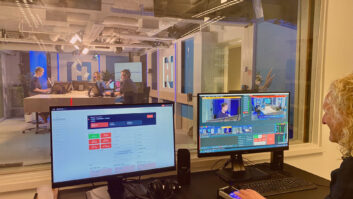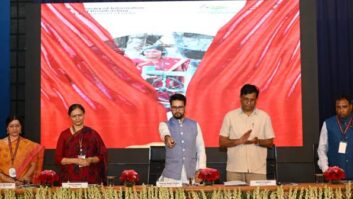The author is membership program director of the National Federation of Community Broadcasters. NFCB commentaries are featured regularly at www.radioworld.com.
In the wake of the completion of Robert Mueller’s report, much is being made of the outcome. More than 600 days and thousands of subpoenas later, we know little as of yet. That has not stopped the speculation.
One thing is clear: radio in communities across America has been a necessary antidote to some of the mess we’re offered on television and digital.
Although it is unlikely anti-Trump forces will get their wish and see Trump impeached over alleged ties to Russian election meddling, they got much coverage of the story. Whether that coverage was a democratic imperative or just excessive remains to be seen. However, I do not believe anyone can argue it was especially smart or illuminating.
[Read: Community Broadcaster: Making Our Case]
Reporting of the investigation was driven quite often by the 24-hour news cycle. Breathless cable channel pieces and roundtables from every angle squeezed the last ounce of drama, day and night. One network even logged every single day the public awaited the report’s completion, including graphics and dour voiceover on it being Day 400, or what have you. The apex of the frenzy may have been in January, when Buzzfeed doubled down on a story by a journalist accused of past plagiarism and shoddy reporting, in which Mueller’s office took the extraordinary step of labeling false.
Seven in 10 Americans say they have news fatigue. Is there any wonder why?
As a former newspaper and radio journalist, I pondered the stories that were missed by the focus on one important, but heavily covered, story. Rather than scold the press for not putting more resources into this-story or that-story, though, I wondered how many journalists spent more time on Mueller reads than going into rural communities and communities of color to share the news we rarely hear. Awaiting and reacting to awaiting the Mueller report added up to hours and hours of news each day for a single story. And while television and digital media is a game of ad impressions, where Mueller stories generate clicks but human trafficking or the epidemic of intimate partner violence don’t, omitting that reality and dressing up the focus to, frankly, “Because Trump,” felt obscenely hollow.
With the findings done and no further criminal charges or other related activity on the horizon, today you do not need to look far to encounter various news outlets and journalists defending this sort of reporting. Simply do a search for “news coverage mueller” and you’ll be treated to a plethora of pundits defending the press. Yet, to quote the famous philosopher Jay-Z, men lie and women lie, but numbers don’t. Television is down in audience. So is digital. Do you know what isn’t?
Radio.
[Want more information like this? Subscribe to our newsletter and get it delivered right to your inbox.]
Chris Stigall argues conservative talk radio has been a corrective to liberal news coverage. While he’s off — Pew is among many organizations to note the nation is skewing more politically liberal in the last 40 years, making the conservative Silent Majority implication a bit suspect — news fatigue and distrust of media are real. These facts are assuredly why there is such disintermediation today; new content providers and outlets are popping up every moment as audiences want a fresh perspective on an issue. When CNN’s 14 thumbnail images screaming at each other and Fox News’ talking heads feel tiresome, most people crave something different.
Local radio offers connection to communities and greater context when Americans feel there’s misinformation elsewhere. At a station like Colorado’s KVNF, the award-winning Local Motion presents stories that reflect a community’s diversity of views. Meanwhile liberal radio talk show hosts like Thom Hartmann are the progressive counterparts of those Stigall champions. Like conservative talkers, such hosts seem unconvinced commercial media is getting the story right, and seek to go farther.
The result of all these fascinating radio departures is a more fully informed public, one that wants more nuance to its news. Radio has provided such richness for generations. Today is a day we only reaffirm that commitment by demonstrating that appealing to minds over clicks makes and keeps us relevant for years to come.
To be clear, my media criticism is more about the model. Furthermore, it is based in a hope for renewed attention on public and community media, which provides an important context to the news. It’s a context from which we can all benefit.











